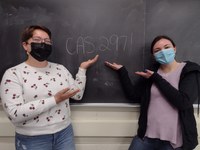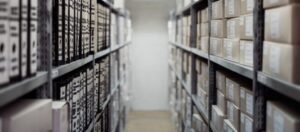
 Rhetoric / Archive / Information
Rhetoric / Archive / InformationThe inventional power of the archive is realized across rhetorical studies, most notably in histories of rhetoric, public address studies, feminist recovery, and queer historiography. This power derives from a multidimensional relationship between rhetoric, archive, and information. While we may learn a good deal about rhetoric’s past through archival research, archives do not function simply as neutral repositories of information. Archives themselves are rhetorical constructions; so too are the various artifacts we find in archives and rely on for information about the past. In the words of Charles Morris, introducing the Rhetoric & Public Affairs forum on the politics of archival research, “The archive…should rightly be understood not as a passive receptacle for historical documents and their ‘truths,’ or a benign research space, but rather as a dynamic site of rhetorical power” (115).
Our course inquiry will take up this archival dynamism in critical and practical terms. How do we understand the rhetorical dimensions of archive and information, particularly as they animate our research? To explore this question, we will read archival scholarship from within rhetorical studies as well as interdisciplinary theories of the archive and information. We will consider not only traditional brick-and-mortar archives but also relatively emergent digital formations, contemplating multiple archival exigencies and infrastructures. Informed by these scholarly conversations, each seminar participant will propose and carry out an original archival research project related to his/her/hir area of specialization. The course’s attention to both theory and method will thus prepare you to conduct your own archival research while reflecting critically on this invention via the archive’s power to inform.